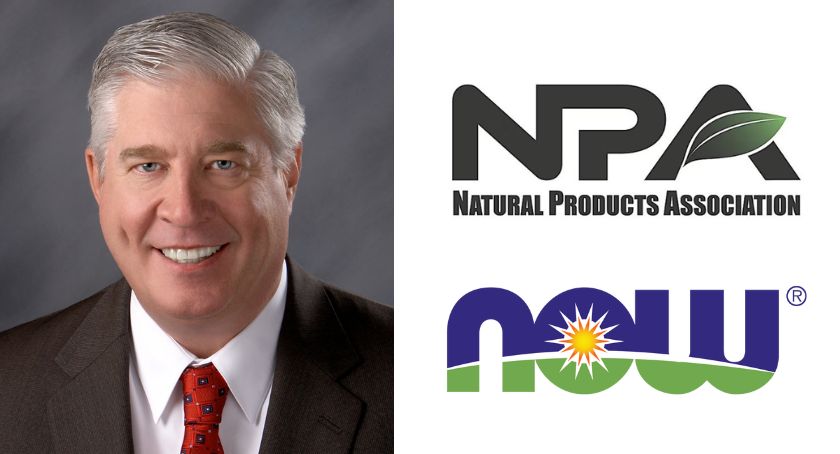Columns
Capitol Comments: Regulating Natural Sweeteners: Stevia, Luo Han Guo & Agave
Companies manufacturing, marketing and/or distributing these products must fully understand nuanced regulations related to safety and use.

By: Todd Harrison
By: Erin Seder

Scientific research has tied high intake of added sugars to many poor health conditions, including obesity, high blood pressure, type 2 diabetes and other risk factors for heart disease and stroke. In 2012 alone, an increased amount of scrutiny was placed on sugar regulation in food products. For example, New York City banned large-size sugary beverages sold at city restaurants, and researchers commented in the February 2012 issue of the journal Nature that sugar should be as strictly regulated as alcohol.
While low- to zero-calorie natural sweeteners are not a new development, their use has increased over the past few years and is currently gaining speed as food companies continue to seek out strategies to avoid the use of persona non grata: sugar. Undoubtedly, this reaction comes in response to not only state and local government efforts to boost the health of Americans and scientific research, but also the foodie movement that has fueled consumers’ desires for more natural food options. In the non-nutritive space, the popularity of stevia and luo han guo as natural sweeteners has grown considerably. The market has also seen increased attention toward natural, nutritive sweeteners like agave.
FDA considers sweeteners “food additives,” which are substances intentionally added to food that become a component or affect the characteristics of the food. A food additive is subject to pre-market approval by FDA unless it is Generally Recognized As Safe (GRAS) among qualified experts as having been adequately shown to be safe under the conditions of its intended use, or if it was sanctioned for use by FDA or USDA prior to 1958. Currently, none of the three aforementioned natural sweeteners have been specifically listed by FDA as GRAS. This is not to say that their use as additives is impermissible, but their nuanced regulation makes it imperative that companies manufacturing, marketing and/or distributing these natural sweetener products fully understand the regulatory obligations of their use.
Derived from the South American plant Stevia rebaudiana Bertoni, stevia is a natural, non-caloric sweetener. It has been used for centuries by the indigenous people of that region to sweeten foods and beverages. The glycosides in stevia leaves, including up to 10% stevioside, account for its incredible sweetness; it is approximately 300 times sweeter than sugar. While stevia has been a popular sweetener in countries such as Japan for years, where consumers used the equivalent of 700 metric tons of stevia leaves in 1987 alone, in the U.S. it has met regulatory obstacles. Even with impediments, stevia has become such a widely used natural sweetener that if you ask the average U.S. consumer whether stevia is a legal food additive, they would most likely say “yes.” However, the consumer would only be partially correct.
By way of history, in 1991, FDA issued an import alert that effectively blocked the importation and sale of stevia in the U.S. Despite a petition to FDA requesting that stevia be granted GRAS status filed the following year by the American Herbal Products Association (AHPA), FDA did not act until Congress forced its hand in 1994 when it passed the Dietary Supplement and Health Education Act (DSHEA). Pursuant to the act, FDA could not regulate any dietary supplement unless it was proven unsafe. At the time, no study could attribute health risks to stevia, and as a result manufacturers could market the herb as a dietary supplement, but not as a sweetener.
The September 1995 revised import alert summarized FDA’s new stevia policy, stating: “If Stevia is to be used in a dietary supplement for a technical effect, such as use as a sweetener or flavoring agent, and is labeled as such, it is considered an unsafe food additive. However, in the absence of labeling specifying that stevia is being or will be used for technical effect, use of stevia as a dietary ingredient in a dietary supplement is not subject to the food additive provisions of [the Federal Food, Drug, and Cosmetics] Act.”
FDA stuck to its guns for more than a decade, essentially asserting that stevia could be legally added to foods in the exact same manner as a food additive so long as the product was labeled a “dietary supplement.”
In December of 2008, FDA began allowing stevia to be marketed as a sweetener. However, here is the catch. Instead of granting GRAS approval, FDA issued a letter of “no objection.” FDA also issued a no objection letter for luo han guo (monk fruit) in January 2010. Unfortunately, many food companies do not realize that this does not mean the agency granted all companies the universal privilege to use stevia or luo han guo as a food additive, nor does it mean that stevia or luo han guo are permissible in all forms. Rather, a letter of no objection is supplier and product specific. Therefore, each supplier receives a separate affirmation. For example, only Rebaudioside A, a purified form of stevia, has been approved. Significantly, FDA does not permit whole leaf or crude stevia extracts.
Agave, in the form of Agave tequilana (blue agave), is also a popular natural sweetener. However, unlike stevia and luo han guo, FDA has not issued any formal recognition (i.e., no objection letter or GRAS listing) that blue agave is a permissible food additive. Nonetheless, this does not mean that it is not GRAS. Any company, whether it wishes to use stevia, luo han guo or agave as a sweetener, may make a GRAS self-determination. A GRAS self-determination must reflect the views of experts qualified by scientific training and experience to evaluate the safety of the sweetener, and these expert views must be based on scientific procedures. Safety based on scientific procedures requires the same quantity and quality of scientific evidence as would be required to obtain a food additive regulation for a substance, including human, animal, analytical and other studies.
GRAS self-determinations became the standard practice for companies once the stevia and luo han guo no objection letters were published. Oftentimes, ingredient suppliers have already done their own GRAS self-determinations that food companies can use, helping to save time and money. Regardless of who compiles the information, all food companies using stevia, luo han guo and agave as additive sweeteners ultimately have the burden of being able to show the sweetener is GRAS.
Todd Harrison is partner with Venable, which is located in Washington, D.C. He advises food and drug companies on a variety of FDA and FTC matters, with an emphasis on dietary supplement, functional food, biotech, legislative, adulteration, labeling and advertising issues. He can be reached at 575 7th St. NW, Washington, D.C. 20004, Tel: 202-344-4724; E-mail: taharrison@venable.com.
Erin Seder is an associate in Venable’s Regulatory practice group, where she advises clients on legislation and rulemaking proceedings that impact a broad range of industries. Ms. Seder also assists clients on a variety of ongoing regulatory compliance matters before the FTC, FCC and other federal and state agencies and commissions.




















